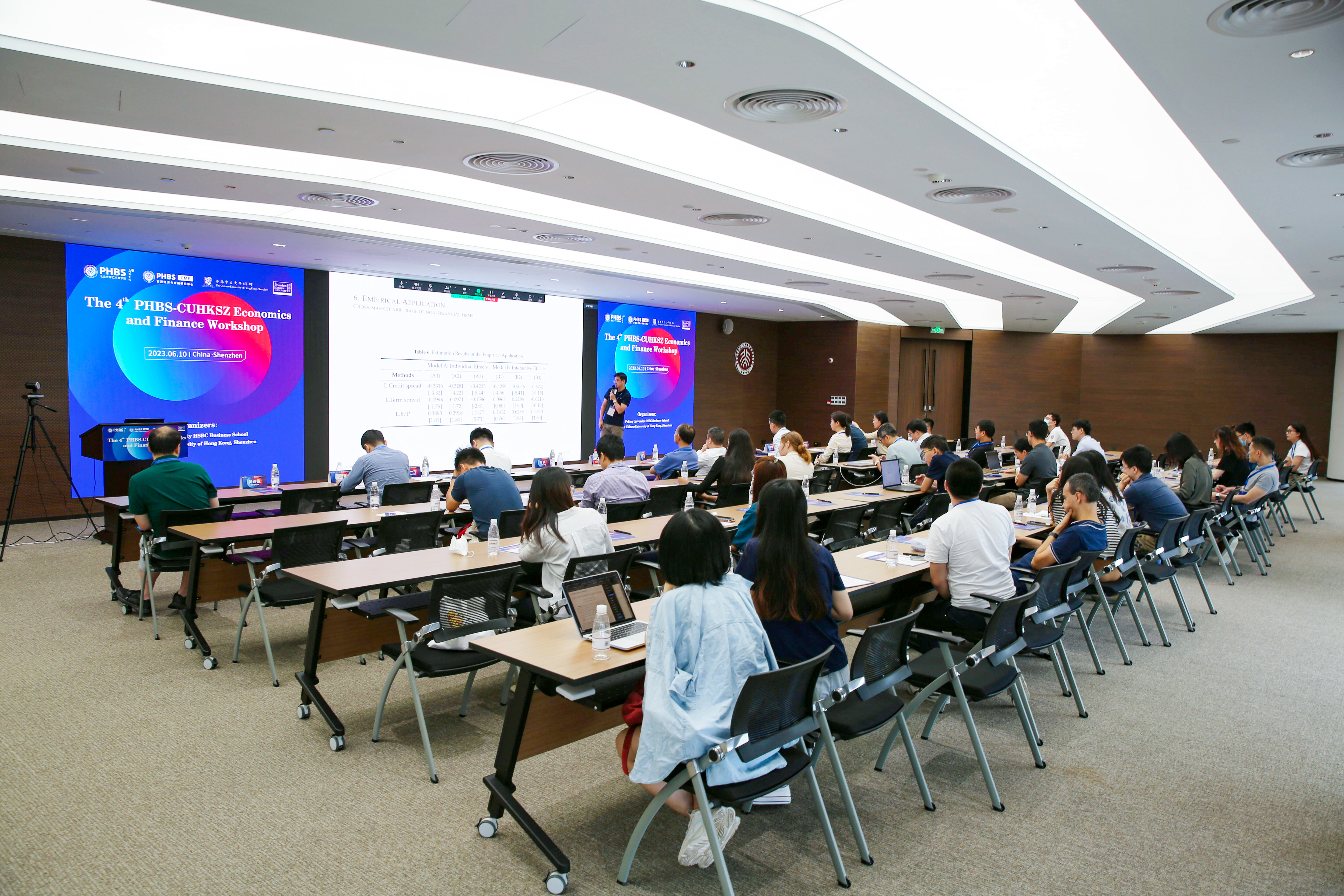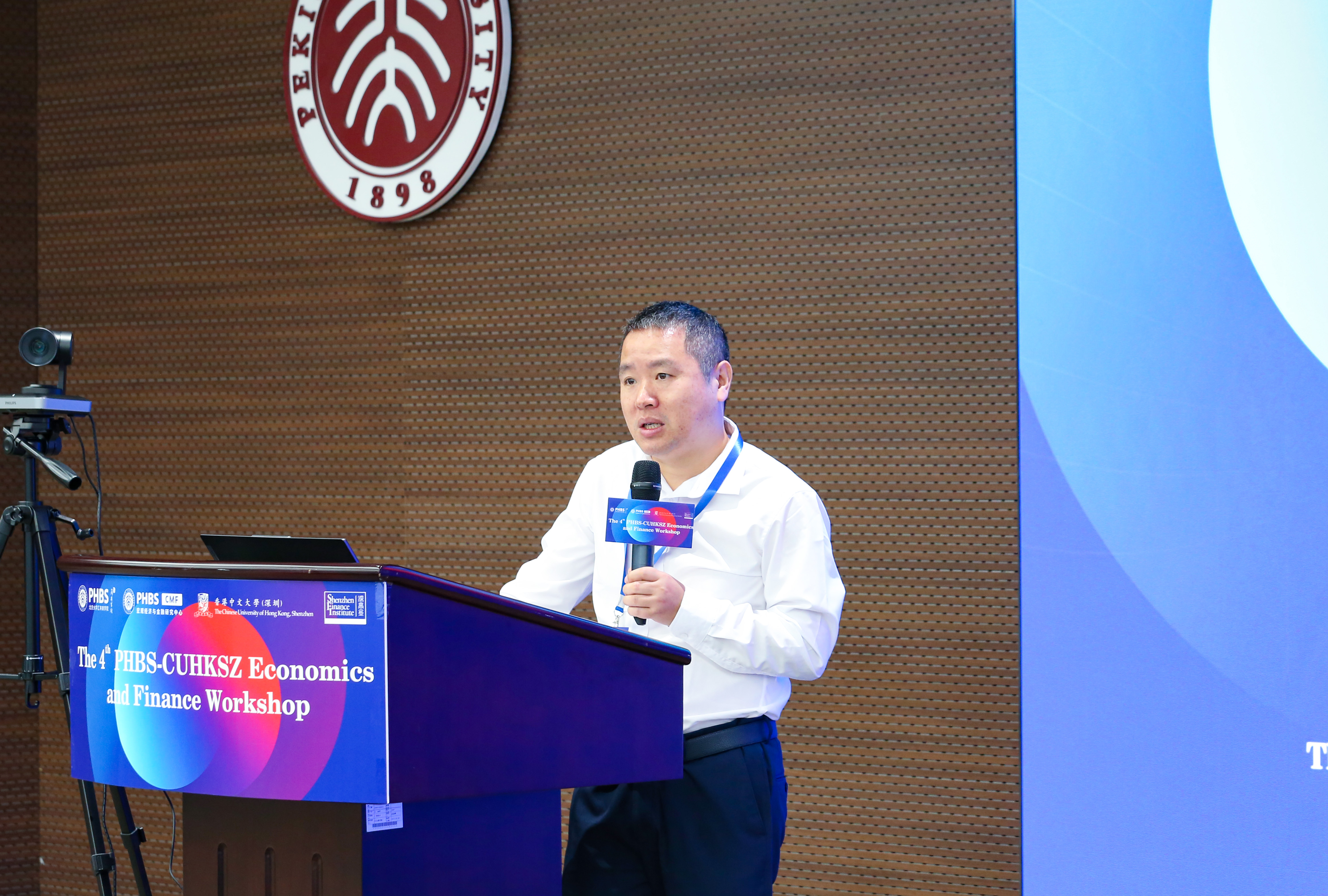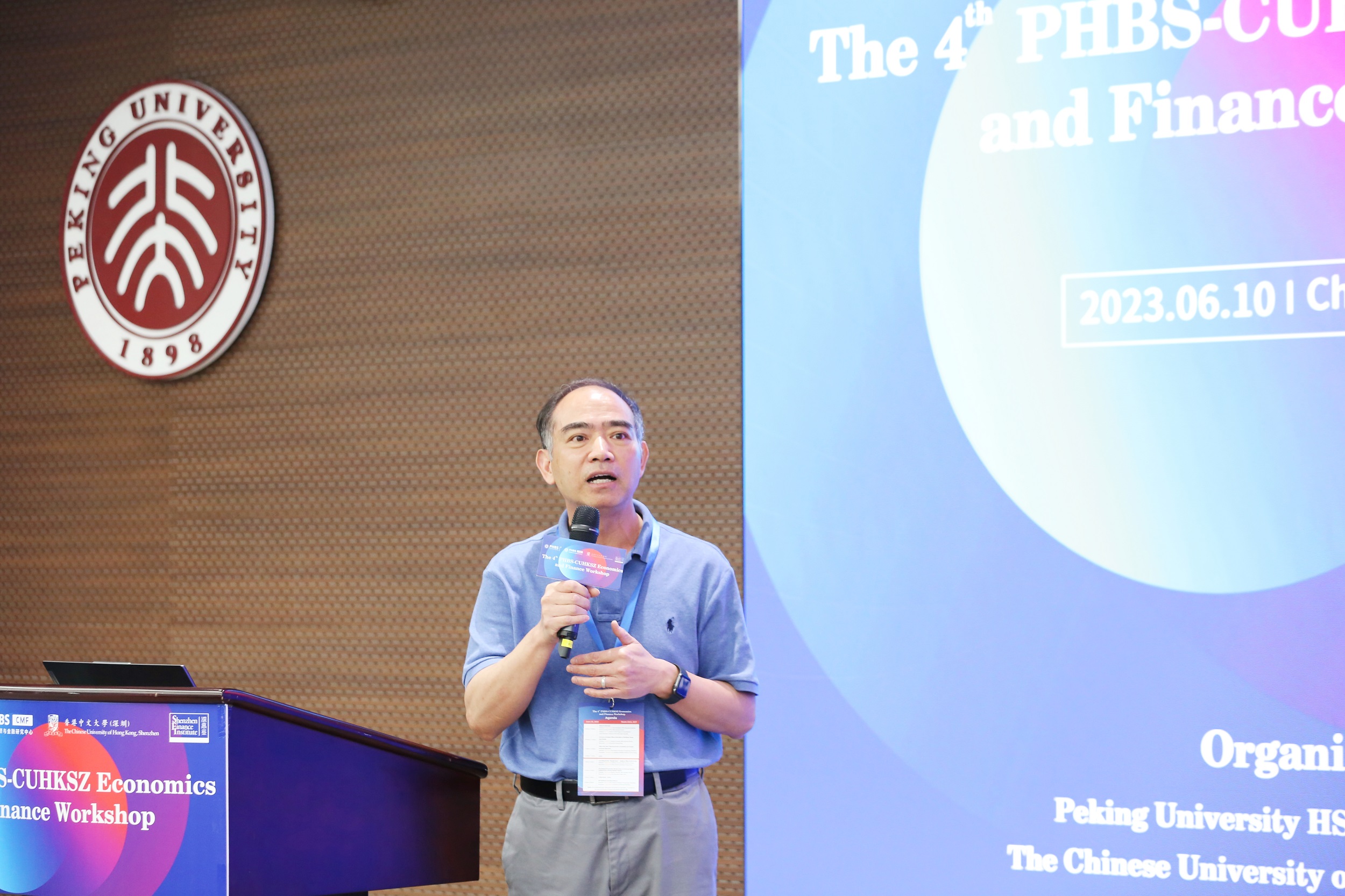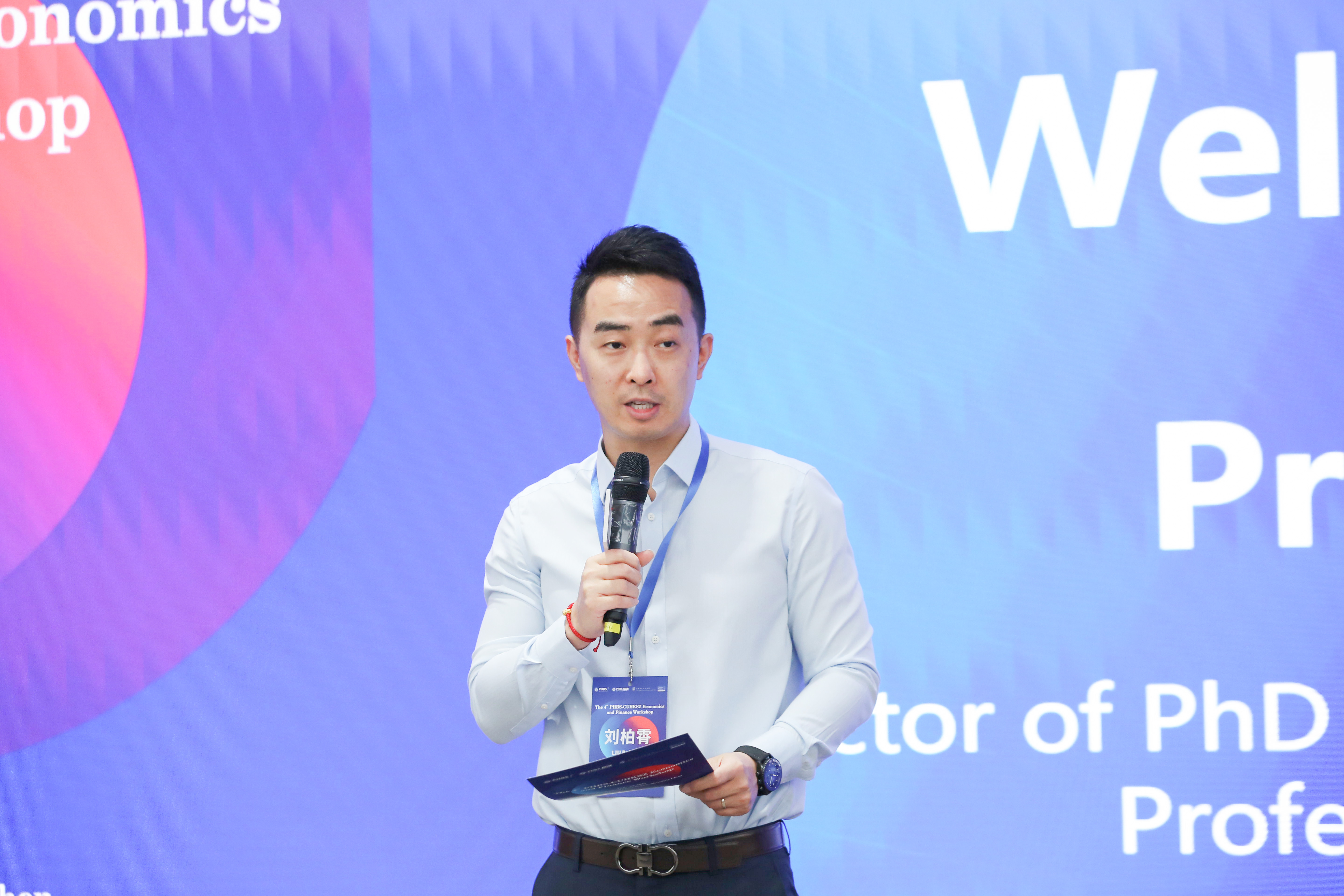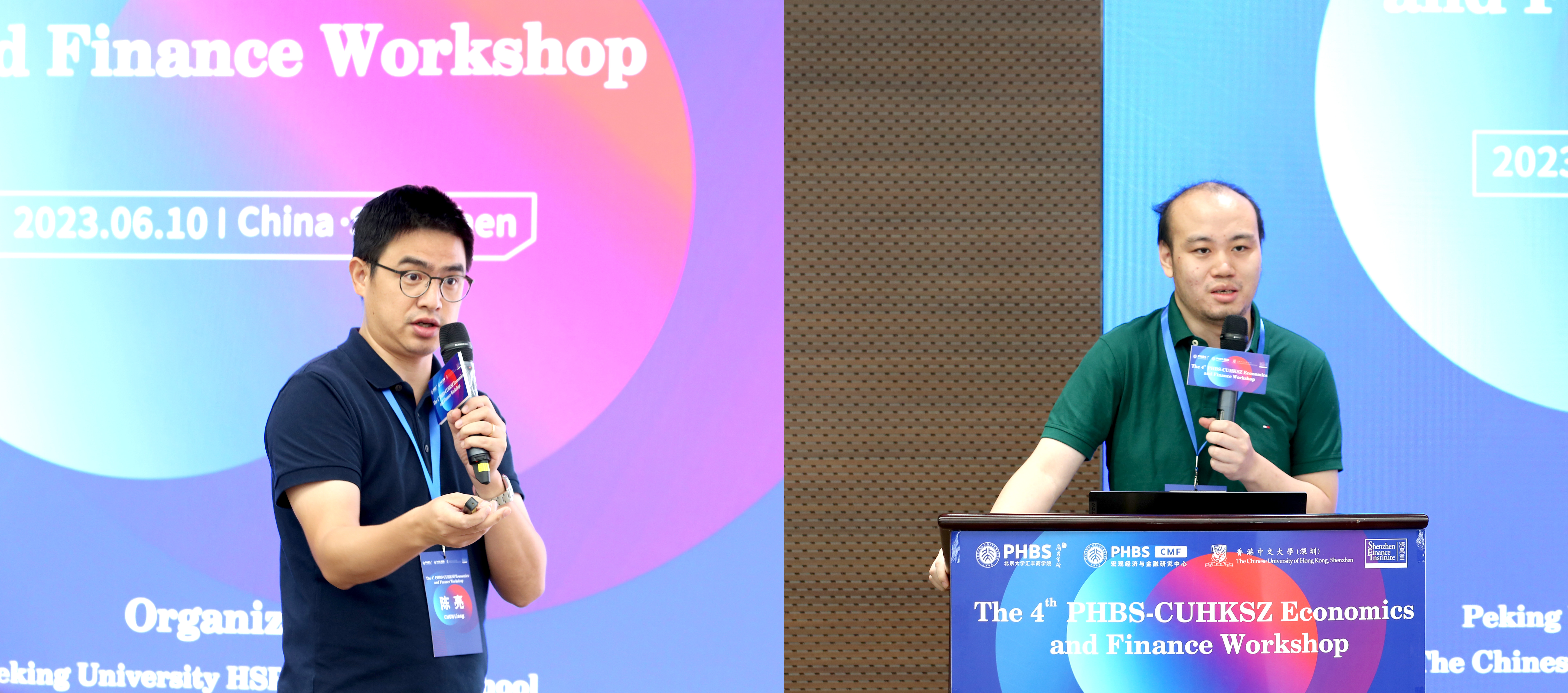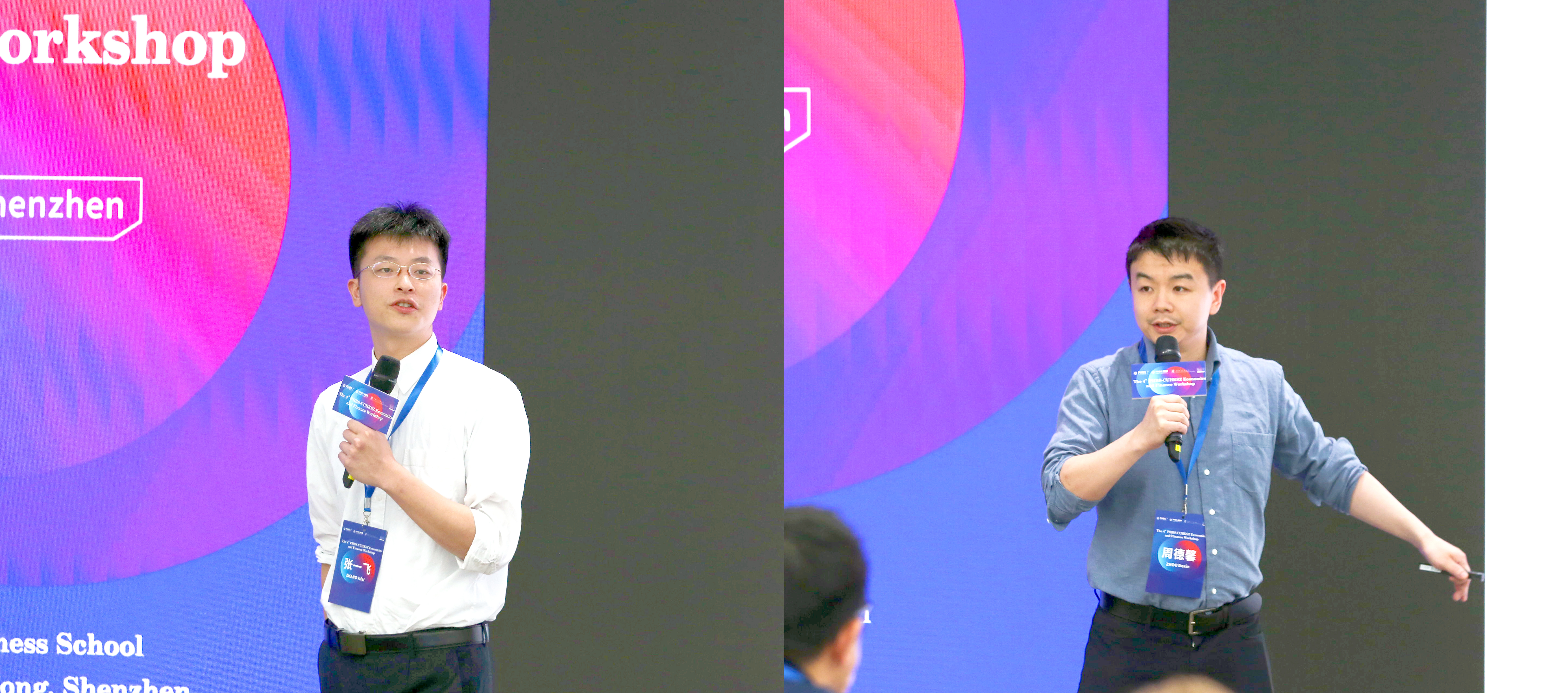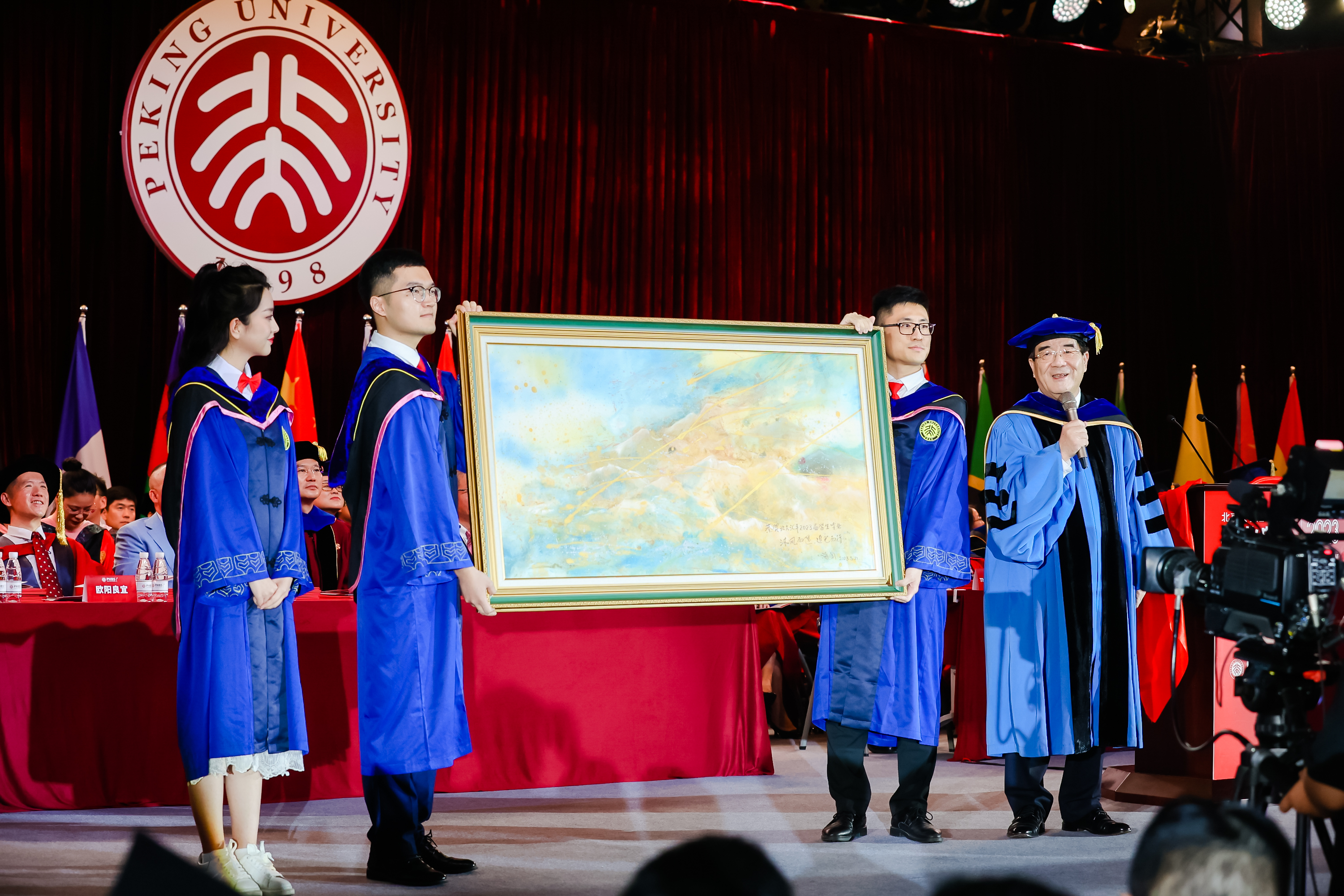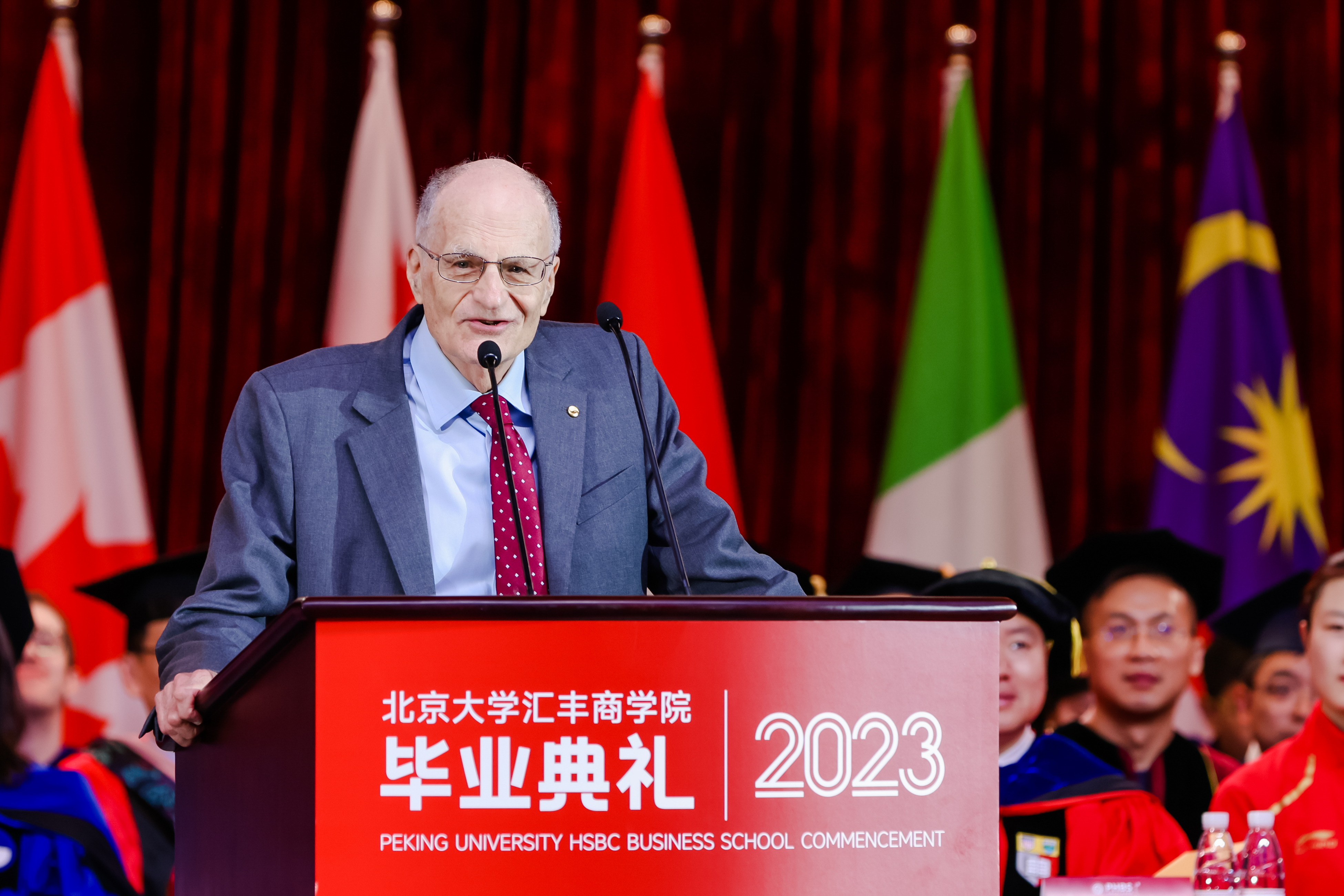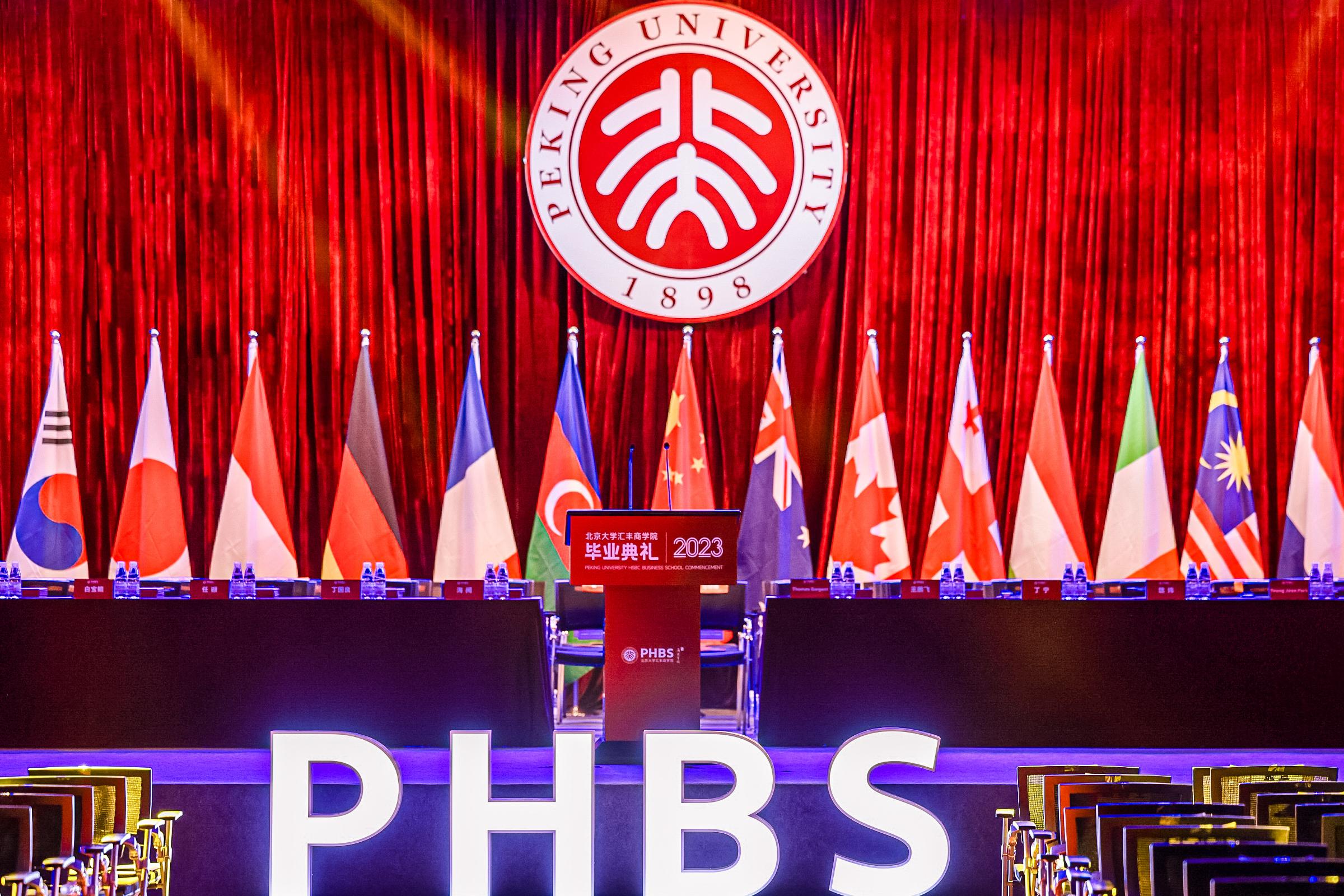Co-hosted by Peking University HSBC Business School (PHBS), School of Management and Economics of the Chinese University of Hong Kong, Shenzhen (CUHK-Shenzhen), and Shenzhen Finance Institute at CUHK-Shenzhen, organized by Center for Macroeconomy and Finance at Peking University, the 4th PHBS-CUHKSZ Economics and Finance workshop was held on June 10 at Qianhai Institute of China-Britain.
The workshop
This year’s workshop attracted scholars from world-class universities including Peking University, Hong Kong University, CUHK-Shenzhen, Southern University of Science and Technology, University of Colorado Boulder, and City University of New York to have in-depth discussions on the latest academic topics in the fields of economics and finance.
Wang Pengfei, Vice Chancellor of Peking University Shenzhen Graduate School and Dean of PHBS
Ye Lixin, Academic Director of the Ph.D. Program in Economics at CUHK-Shenzhen and Professor of Ohio State University
PHBS Associate Professor Liu Baixiao
At the opening ceremony, Wang Pengfei, vice chancellor of Peking University Shenzhen Graduate School and dean of PHBS, and Ye Lixin, academic director of the Ph.D. program in economics at CUHK-Shenzhen and professor of Ohio State University, delivered remarks on behalf of the organizers. Professor Wang expressed his gratitude to the partners of this workshop, and hoped that the event could continue to strengthen the ties between academic institutions and to keep track of academic advancements. Professor Ye hoped that it could become an excellent academic platform for Shenzhen and even for the whole China, and promote the academic development and research cooperation in the Greater Bay Area. The opening ceremony was presided over by Liu Baixiao, tenured associate professor of PHBS.
From left to right: Chen Liang and Luo Ye
PHBS Assistant Professor Chen Liang presented his paper Common Correlated Effects Estimation of Nonlinear Panel Data Models. The article focuses on estimating coefficients and average partial effects in nonlinear panel data models with interactive fixed effects. It proposes a two-step estimation method using the common correlated effects (CCE) framework. The first step involves estimating latent factors based on cross-sectional averages of the regressions using principal component analysis. In the second step, the coefficients and factor loadings are jointly estimated. The paper derives the asymptotic distributions of the estimators and introduces bias-correction methods. Monte Carlo simulations confirm the good performance of the proposed methods. An empirical application explores the arbitrage behavior of nonfinancial firms in different security markets. The CCE approach offers computational advantages and assumes cross-sectional dependence driven by the same latent factors. Associate Professor Luo Ye from the University of Hong Kong provided comments and suggestions on the possibility of endogeneity problem and alternative bias correction methods.
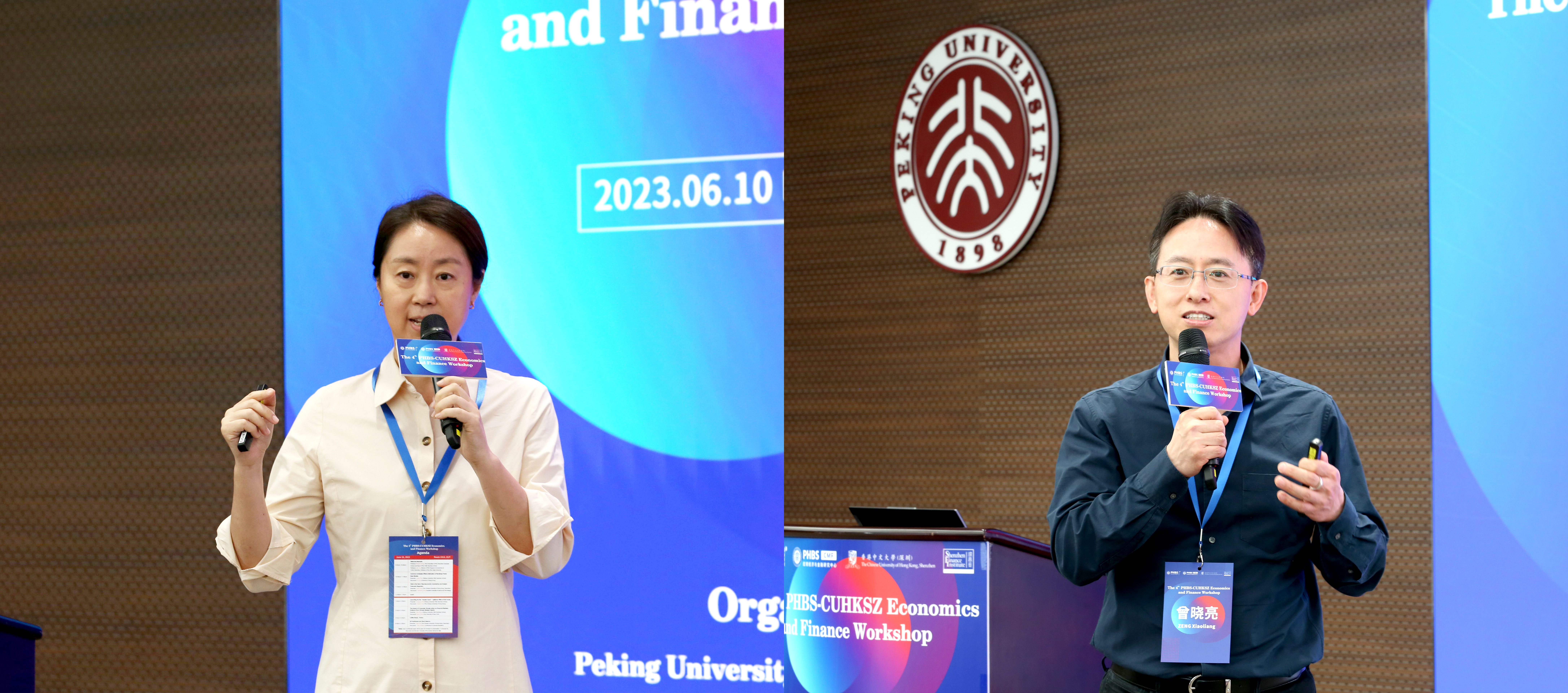
From left to right: Zhao Shen and Albert Tsang
Assistant Professor Zhao Shen from CUHKSZ introduced her paper Hide in the herd: macroeconomic uncertainty and analyst forecasts dispersion. This article explores the relationship between macroeconomic uncertainty and analyst earnings forecast dispersion. The study finds a negative correlation between the two, suggesting that when macro uncertainty increases, analysts tend to exhibit herding behavior and agree more with each other. The herding firms, characterized by higher uncertainty levels, experience stronger momentum in stock prices and underreact to both firm and macro news. Additionally, these firms are more likely to be overpriced and earn lower subsequent returns. The findings highlight the interaction between macro uncertainty, herding behavior, and informational inefficiency in the market. Professor Albert Tsang from Southern University of Science and Technology gave comments and suggestions on the benefit of herding behavior, the similarity between dependent and independent variables and alternative explanations on this phenomenon.
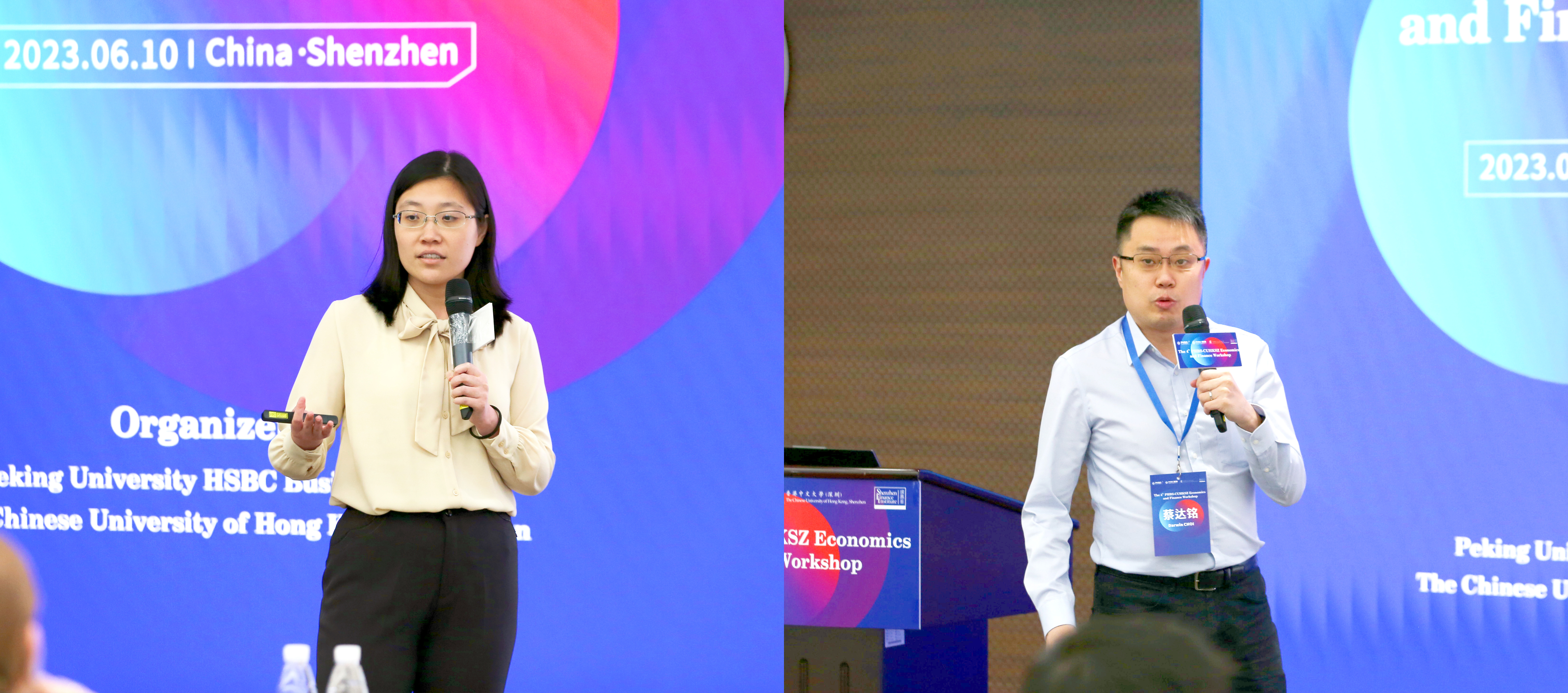
From left to right: Ma Fangyuan and Darwin Choi
PHBS Assistant Professor Ma Fangyuan presented a collaborative paper titled ‘Launching for the “Greater Good”: Spillover Effect of ESG Funds’, which explores the relationship between ESG funds and within-family non-ESG funds' capital flows. The study uses data from US open-ended equity funds and finds that the launch of ESG funds has a positive spillover effect on the capital flows of non-ESG sibling funds within the same fund family. Associate Professor Darwin Choi from the Chinese University of Hong Kong commented on the paper, leading to discussions on various related topics.
From left to right: Zhang Yifei and Zhou Dexin
PHBS Assistant Professor Zhang Yifei introduced the paper titled " The Impact of Corporate Climate Action on Financial Markets: Evidence from Climate-Related Patents." The paper addresses two main challenges in studying the impact of corporate climate action, which are endogeneity and the measurement errors in ESG ratings. The study uses patent grants as the instrumental variable. The results show that companies granted climate-related patents experience significant abnormal returns in the stock market and a reduction in implied cost of capital. Additionally, the study explores the reaction of ESG-minded investors and ESG rating agencies to climate patent approvals. The findings suggest that climate-related patents have a positive impact on firms' carbon efficiency. Assistant Professor Zhou Dexin from City University of New York had discussions on various related topics like marginal utility.
From left to right: Wu Shijia and Tony Cookson
Assistant Professor Wu Shijia from CUHKSZ introduced her paper GIF Sentiment and Stock Returns. This paper introduces a new measure of investor sentiment called GIFSentiment, which is derived from graphics interchange format images (GIFs) found in postings about firms on Stocktwits.com. The study finds that GIFSentiment is positively correlated with same-day stock returns and predicts stock return reversals in the following two weeks. The results are stronger for GIFs with salient content, viral GIFs, GIFs posted by influencers, and GIFs related to stocks with more retail ownership and stricter limits to arbitrage. GIFSentiment also predicts increases in retail order imbalances and short sale volumes. The findings suggest that sentiment expressed through GIFs can influence stock market behavior. Associate Professor Tony Cookson from University of Colorado Boulders provided comments and suggestions on cross-stock differences and methods to deal with special time period.
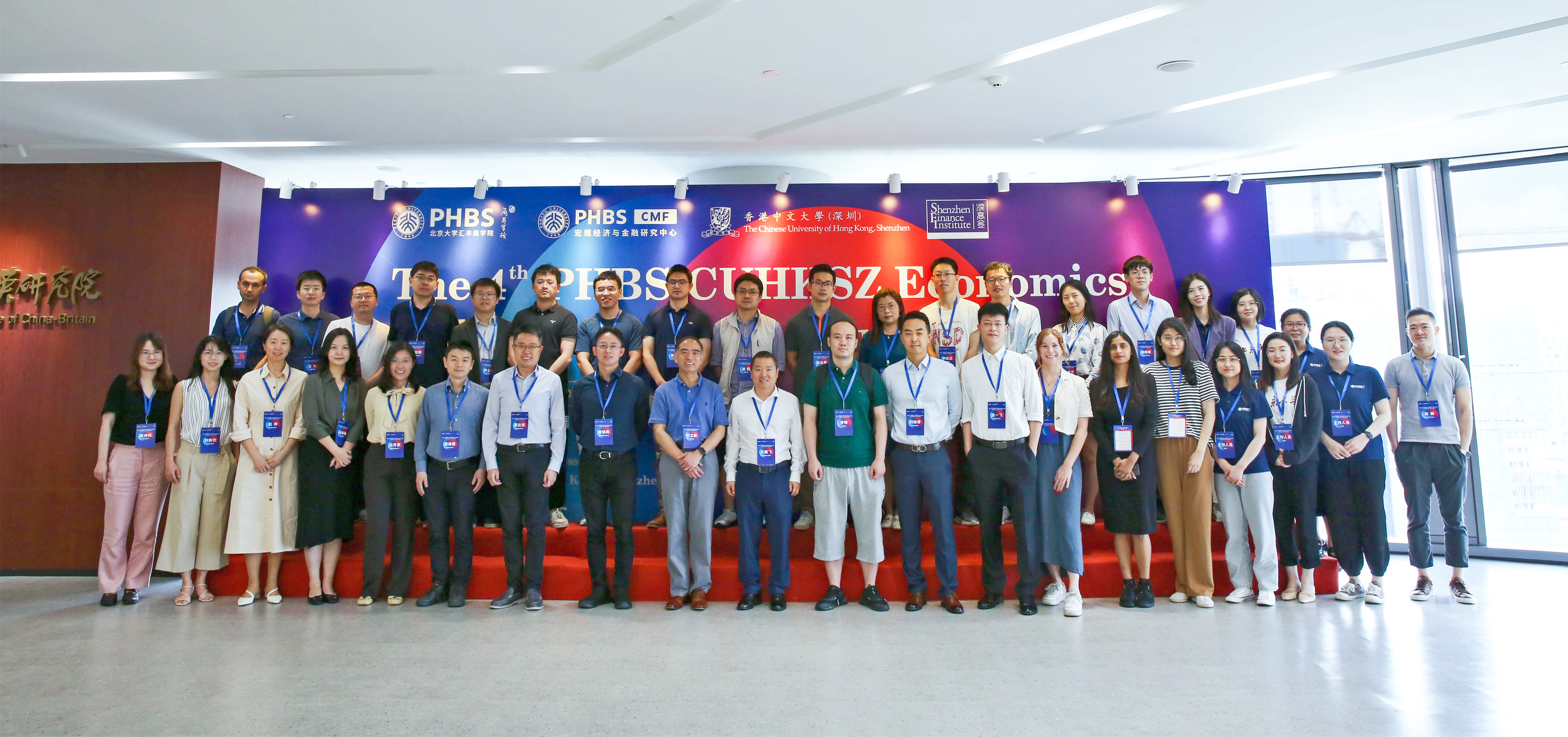
The group photo of participants
The PHBS-CUHKSZ Economics and Finance workshop is committed to stimulating the research potential of young scholars, facilitating academic exchanges among them, and promoting the academic development as well as research cooperation in the fields of economics and finance in the Guangdong-Hong Kong-Macao Greater Bay Area. Initiated in 2021, the first workshop was held at Shenzhen Finance Institute, CUHK-Shenzhen and will be held every six months by PHBS or Shenzhen Finance Institute, CUHK-Shenzhen.
By Zhang Wenrui, Wu Zouyi, and Annie Jin
Source: PHBS Research Office & PR and Media Office





